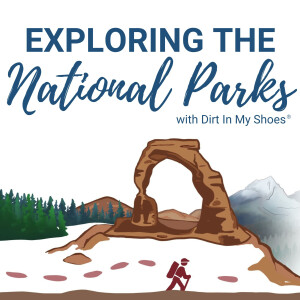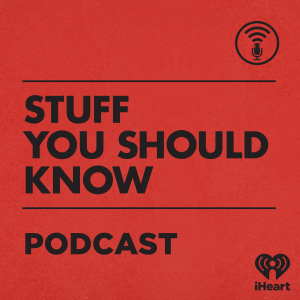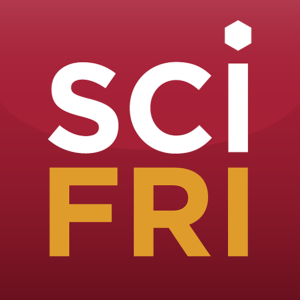
Scientists have long thought that when two animals from two different species mate, it’s a colossal error and the end of the road for the mismatched couple. It’s called interspecies breeding, and many hybrid offspring often end up sterile, such as zonkeys —a cross between a zebra and donkey. Or they can develop serious health problems, like ligers and tigons.
One biologist even went as far to call interspecies breeding “the grossest blunder in sexual preference.” But is breeding across species lines always a dead end? One critter —the plains spadefoot toad—shows us that maybe it isn’t. In fact, it can give them a leg up in survival.
Katherine Wu, staff writer for The Atlantic, talks with Ira about the complicated sex lives of the female plains spadefoot toads, the trade-offs females make when choosing a mate, and why hybridizing critters may not be such a biological abomination after all.
Major Semiconductor Support Bill Passes First Hurdle
Earlier this week, the Senate voted in favor of the Creating Helpful Incentives to Produce Semiconductors (CHIPS) for America Act. If passed, the bill would provide more than $50 billion to companies that will build semiconductor factories here in the United States. Semiconductors are versatile materials—such as silicon—often used in electronics and in microchips. But the bulk of semiconductors, known as “chips,” are produced in other countries, mostly Taiwan. If the CHIPS Act is passed, the government will fund tech companies to build factories at home instead. Although the bill still has to go through the House and be signed by President Biden, this Senate vote is still a monumental moment in the tech world.
Jesús del Alamo, a professor of electrical engineering at MIT, joins Ira to talk about why this bill is such a big deal, and what’s at stake.
Drought Could Raise Toxic Dust Around Utah’s Great Salt Lake
Utah’s Great Salt Lake holds a unique ecological niche as the western hemisphere’s largest saltwater lake. The body of water is three to five times saltier than the ocean, with salinity ranging between 12 and 28 percent. According to the Great Salt Lake Institute, millions of birds from more than 250 species rely on the lake yearly, alongside a diverse variety of plants and animals.
Like many bodies of water in the U.S., climate change is affecting the status quo in the Great Salt Lake. The water is drying up at an alarming rate, reaching its lowest level in recorded history this month. Now, researchers warn that toxic dust could increase as water levels continue to drop.
Joining Ira to discuss the Great Salt Lake’s ecosystem and future is Bonnie Baxter, director of the Great Salt Lake Institute and biology professor at Westminster College in Salt Lake City, Utah.
A Flaw in Human Judgment: How Making Decisions Isn’t As Objective As You Think
If two people are presented with the same set of facts, they will often draw different conclusions. For example, judges often dole out different sentences for the same case, which can lead to an unjust system. This unwanted variability in judgments in which we expect uniformity is what psychologist Daniel Kahneman calls “noise.”
The importance of thoughtful decision-making has come in stark relief during the pandemic and in the events leading up to the January 6th insurrection.
Ira talks with Nobel Prize-winning psychologist Daniel Kahneman about the role of ‘noise’ in human judgment, his long career studying cognitive biases, and how systematic decision-making can result in fewer errors.
Kahneman is the co-author of “Noise: A Flaw in Human Judgment,” along with Oliver Sibony and Cass R. Sunstein, now available in paperback.
Transcripts for each segment will be available the week after the show airs on sciencefriday.com.
More Episodes
Art Crime Science, Long Covid Update, Earth's Slowing Core. Jan 27, 2023, Part 1
 2023-01-27
2023-01-27
Gas Stoves, Next Gen Vaccines, Printed Violins. January 20, 2023, Part 2
 2023-01-20
2023-01-20
Children’s Antibiotics Shortage, Bat Vocalizations, Life’s Biggest Questions. January 20, 2023, Part 1
 2023-01-20
2023-01-20
Tech To Watch, Pests. January 13, 2023, Part 2
 2023-01-13
2023-01-13
Lab-Grown Meat Progress, Early Human Migration Updates. January 13, 2023, Part 1
 2023-01-13
2023-01-13
Science Comedy, Shifting Rules For Abortion Pills. Jan 6, 2023, Part 1
 2023-01-06
2023-01-06
Redlining and Baltimore Trees, The Root Of A Gopher Mystery, Cold and the Nose, Glass Frogs. Jan 6, 2023, Part 2
 2023-01-06
2023-01-06
Astronaut Food, Nope Creature, Nature Soundscapes. Dec 30, 2022, Part 2
 2022-12-30
2022-12-30
Champagne Fizzics, Last Days of the Dinosaurs, Vole Girl. Dec 30, 2022, Part 1
 2022-12-30
2022-12-30
Glitter, Chestnuts, DNA Data Art, Mistletoe. Dec 23, 2022, Part 2
 2022-12-23
2022-12-23
Top Science Stories Of 2022, Beavers, Christmas Tree Care. Dec 23, 2022, Part 1
 2022-12-23
2022-12-23
Fusion Advance, Cancer Clinical Trial, Christmas Trees And Climate, Best Video Games. December 16, 2022, Part 1
 2022-12-16
2022-12-16
Improving Care For Disabled Patients, Transistor Anniversary, Whale Strikes. December 16, 2022, Part 2
 2022-12-16
2022-12-16
Medicinal Psychedelics Study, AI Art. December 9, 2022, Part 2
 2022-12-09
2022-12-09
The Future Of Birds In North America, 190th Birthday For Tortoise. December 9, 2022, Part 1
 2022-12-09
2022-12-09
Hawai'i's Volcanic Eruption, Science Of Chemistry Nobel, What Is ‘Swing’ In Jazz? Dec 2, 2022, Part 1
 2022-12-02
2022-12-02
Xenotransplantation, Internet of Things, Sea Life Essays, Water Taste-Testing. Dec 2, 2022, Part 2
 2022-12-02
2022-12-02
Largest Animal Crossing, First Complete Human Genome, Exoplanet Discoveries. November 25, 2022, Part 2
 2022-11-25
2022-11-25
Best Science Books For Kids, Indigenous Science, Ignobel Prizes. November 25, 2022, Part 1
 2022-11-25
2022-11-25
NASA Artemis Mission Launches To The Moon, Science Behind Thanksgiving Meals. November 18, 2022, Part 2
 2022-11-18
2022-11-18
Create your
podcast in
minutes
- Full-featured podcast site
- Unlimited storage and bandwidth
- Comprehensive podcast stats
- Distribute to Apple Podcasts, Spotify, and more
- Make money with your podcast
It is Free
You may also like

Exploring the National Parks


The Covert Narcissism Podcast


Greece Travel Secrets Podcast


Stuff You Should Know


Timcast IRL

- Privacy Policy
- Cookie Policy
- Terms of Use
- Consent Preferences
- Copyright © 2015-2024 Podbean.com



 iOS
iOS Android
Android